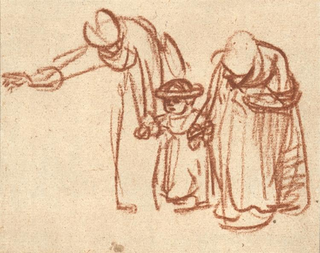Health
Caring for Children: A Sacred Calling
In an age when countless children suffer neglect, we musn't forget why we care.
Posted June 27, 2019
As a pediatric physician, I have learned that in order to care well for children, we must first care about them. History provides few more remarkable examples of such care than Jesus of Nazareth (c. 4 BC to c. 30 AD). Regarded by some as a moral teacher, others as a prophet, and still others as the son of God, we need not resolve his religious status to glean from his life deep insights into what children are, how they relate to us, and how and why we are called to care for them.
In Jesus’ day, children were not always well cared for. For example, Roman culture permitted and even expected parents to abandon some infants to die from exposure, and children counted legally as personal property. By contrast, Jewish culture tended to regard children as the answer to a divine calling to be fruitful and multiply, as well as a sign of blessedness and a source of joy.
The depth of Jesus’ concern is revealed when his disciples stop little children from coming to him, one of only two times in the Gospels that he is said to become angry. Rebuking his disciples, Jesus welcomes the little ones, takes them up into his arms, and blesses them.

Jesus’ response suggests several things. First, even the least among us–the smallest, weakest, and voiceless–deserve our concern. Second, the powerless are especially precious, in part precisely because they are so vulnerable. Finally, Jesus says in the same passage that whoever does not receive the kingdom of God as a child will never enter it. He reminds us that we adults should not overlook our own insufficiency and dependence.
So long as we suppose that maturing into adulthood, attaining economic self-sufficiency, and assuming the mantle of success have somehow put childhood dependency completely behind us, we are lost. From Jesus’ point of view, any goods we enjoy in life–including not only material prosperity but also health, friendship, family life, happiness, and even life itself–should be seen not as our due but divine gifts. In caring for children, we catch a glimpse of what we really are.
Professionals such as physicians often resemble the people Jesus tends to rebuke–compared to most, we are well-off financially, highly educated, and wield authority substantial over others’ health and lives. Approaching each day from such a perspective, we could easily begin to put ourselves first. Jesus reminds us that, no matter how prosperous, famous, or powerful we have become, we are not high and mighty. From a divine perspective, we too are but “little ones.”
On another occasion, when Jesus sees his disciples arguing over which among them is greatest, he takes up a little child in his arms, saying “Whoever welcomes one such child in my name welcomes me.” Greatness is manifest less through victories in commerce, politics, or battle than in service, and especially service to the most vulnerable. The disciples seek to outdo one another in argument, but Jesus urges them to channel their energies to serving and loving those who depend most on us. It is in so humbling ourselves that we shine.
The woman once known as Mother Teresa–now Saint Teresa of Calcutta–was once asked how she could bear caring for so many human beings in dire straits. She replied, “I remind myself that each one is Jesus in disguise.” She calls us to recognize that children bear the reflection of a great servant. Medical care means diagnosing and treating diseases, but it also involves seeing clearly what matters most in life.
Jesus’s view of children offers opportunities to deepen our commitment to their care. We define ourselves as a society and as human beings in large part by how we care for them. Children show us more clearly than anyone what it means to count our blessings. They remind us that, from the highest and most enduring perspective, we are but small parts of a much larger whole. And it is in service to them, the ones who depend most on us, that we enjoy one of our best chances of leading lives that matter.


